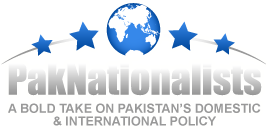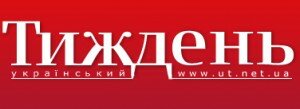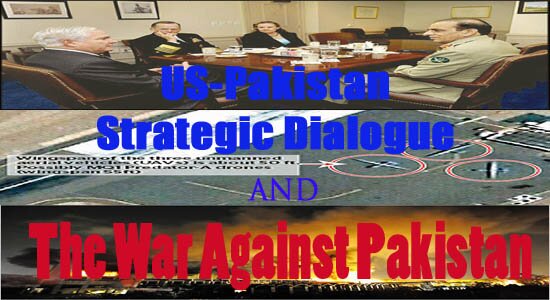 Print This Post
Print This Post  Email This Post
Email This Post
The Ukranian Week
- Development and building institutions and traditions is more important for a new country than democracy. That’s precisely what Pakistan needed and continues to need. In Pakistan, we need a visionary nationalistic leadership at the top backed by the strength of the Pakistani military to install a confident visionary leadership and give it consistency and continuity. That’s the formula that worked for China. The more time we waste in propping up a fake democracy, the more Pakistan will come closer to internal failure.
- Consider Mr. Musharraf and Mr. Putin, both products of military institutions in their respective countries. Both came to power around the same time. Ten years later, Musharraf faces the humiliation of exile and defeat while Putin is still in power. Musharraf led the country into internal and external chaos leaving Pakistan humiliatingly even more dependent on other countries that are taking advantage of the situation, while Putin saved Russia from collapse and reasserted Russia’s power when everyone had written that country off.
Ahmed Quraishi is one of the youngest public policy commentators and broadcasters to have emerged in Pakistan since the country adopted a media liberalization policy in 2002. Until recently, he was hosting a talk show on state-run PTV that projected Pakistan’s foreign policy positions.
He is a co-author most recently of The India Doctrine: 1947-2007.
Mr. Quraishi was born, raised and educated in Kuwait (1972). An avid polyglot; he is proficient in Arabic, English, and Urdu, with an active interest in Turkish and Farsi.
Q&A
- Mr. Quraishi, What is the main problem that Pakistan is facing in the current situation? Is it terrorism, Taliban, nuclear weapon or something else?
- Destiny and leadership. We in Pakistan don’t have a sense of destiny and purpose, and lack real leaders. There is no better way to describe our predicament in Pakistan. Politicians and army generals have rotated power for decades. But none was able to give Pakistanis a sense of destiny. Pakistani politicians and generals are unable to run schools or cities or plan for the nation’s future needs. They don’t know if they want to be a nuclear power just to scare India or also as a means to projecting power in order to achieve Pakistan’s legitimate economic and security interests in its expanded strategic space of central-south-western Asia.
There is no sense of destiny within the Pakistani ruling elite. Unlike it, ordinary Pakistanis are better motivated. They see the hand of destiny in the history of their ancestors in the region and in the way the Pakistan Independence Movement secured an independent country sixty-four years ago. Let me give you a brief example. Behind locked door, Pakistani scientists are busy creating new weapons and policymakers are huddled to strategize on Afghanistan and Kashmir, but the political leaders in Islamabad fail to reflect this sense of self-confidence in local politics or in foreign policy.
- Is there a governance problem in Pakistan?
- A huge one. Political parties everywhere generate new leaderships and infuse new blood into the system. Not in Pakistan. Here parties are run by families which in turn make alliances with other families or clans and keep Pakistani politics restricted and stagnant. The only power that managed to break this monopoly several times is the Pakistani military. But instead of giving the nation a new system, the military restored power to the same corrupt elite after every transition to civilian rule. Over the past six decades, a silent alliance has emerged between the military and the narrow family-based political elite. This undeclared alliance is blocking change and choking the creative abilities of the Pakistani people.
Of course the Pakistani military is a very well organized and patriotic national institution and there is no way of comparing its effectiveness with our failed political parties. This is why this undeclared alliance is all the more surprising because most military officers come from middle and lower classes and most politicians come from feudal and moneyed backgrounds. What appears to have happened is that over time wealthy feudal politicians have basically found ways to create inroads into the military elite and lure it into common corrupt practices. This has manifested itself most recently during the government of Gen. Pervez Musharraf.
Just to show you how ironic this situation is, consider Mr. Musharraf and Mr. Putin, both products of military institutions in their respective countries. Both came to power around the same time. Ten years later, Musharraf faces the humiliation of exile and defeat while Putin is still in power. Musharraf led the country into internal and external chaos leaving Pakistan humiliatingly even more dependent on other countries that are taking advantage of the situation, while Putin saved Russia from collapse and reasserted Russia’s power when everyone had written that country off.
- How many centers of power today in Pakistan?
- This question exemplifies the mess in Pakistan today. Before 9/11, there were three power centers in Pakistan: military, feudal elite, and religious parties. After 9/11, the power centers have multiplied for the worse. Now we have the military, feudal elite, religious parties, ethno-linguistic parties, United States, Saudi Arabia, Iran, China, United Arab Emirates, outlawed paramilitary groups like the so-called Pakistani Taliban and the Balochistan Liberation Army, several business cartels ranging from transportation to sugar barons, and anyone who is willing to pick up arms and challenge the State. Several previous governments, both political and military-led, contributed to this mess, with the policies of Mr. Musharraf and now Mr. Zardari exacerbating the situation.
- Why democracy didn’t take roots in Pakistan?
- Democracy can’t work in a country that is yet to undergo the process of nationalist rebirth. It is fatal to impose and practice full democracy in a new State that suffers structural flaws and needs time to mature. Wherever you see a successful democracy, there must have been a period of consolidation, of strengthening the State, before opening the door to a free-for-all democracy. The best example of this is Russia. Mr. Gorbachev’s little experiment in importing British-style democracy almost cost the Russians their country. The Russians hadn’t had the time to consolidate their State and nationhood following the Soviet collapse. In that case, democracy only served to magnify State’s weaknesses, not strengths. In less than a decade of practicing democracy, Russia was falling apart. It had degenerated into infighting between competing power centers, and this situation was worsened by direct foreign meddling in Russian politics and economy.
What saved Russia? Certainly not democracy.
In a nutshell, development and building institutions and traditions is more important for a new country than democracy. That’s precisely what Pakistan needed and continues to need. In Pakistan, we need a visionary nationalistic leadership at the top backed by the strength of the Pakistani military to install a confident visionary leadership and give it consistency and continuity. That’s the formula that worked for China. The more time we waste in propping up a fake democracy, the more Pakistan will come closer to internal failure.
There is nothing shameful about critiquing the credentials of the British or the American political system or democracy. It can’t work for everyone. We have the right and we can tailor things and pick and choose what’s suitable for us without any apologies to anyone. Hopefully we are moving in this direction in Pakistan.
- Under what conditions democracy in Pakistan could be better, than military control?
- When it is led by capable Pakistanis who have ideas for how to take the nation forward, when the politicians and their parties are not conducting direct diplomacy with foreign governments to secure power through foreign intervention or help, when Pakistani politicians are based in Pakistan and not in New York, London, Dubai and Jeddah, and when Pakistani politicians understand that Pakistan’s national interest is defined less by what the United States and Britain say and more by what Pakistani interests dictate.
- Instability in Afghanistan it’s also the question of Pakistan’s stability?
- Events in Afghanistan directly impact Pakistan and this is why Pakistan is very sensitive about what happens in that country and rightly feels it must have a say in any arrangements made by the United States and its allies in that country. No country in the world has paid more to the Afghans than Pakistan did. We continue to host, educate and provide services and livelihood to more than two million Afghan refugees. If you walk on Kabul streets you’ll meet scores of Afghans who were educated in Pakistani schools, went to Pakistani hospitals and grew up watching Pakistani television. Even today the most watched television channel in Afghanistan is Khyber TV, which is privately-owned and broadcast from Islamabad and
Peshawar.
- Pakistan is an integral part of South Asia in geographic, cultural, linguistic and historic terms but its rulers have emphasized the country’s relations with the Middle East since independence in 1947?
- It is incorrect to say that. Pakistan is an ethnic, linguistic, historical and geographic pivot between Middle East, Central Asia and South Asia. Pakistan does not lie exclusively in any one of those domains but encompasses parts of all three. Pakistanis trace their ethnicity to a mix of Arabs, Persians, Turks, Aryans and Indians. Urdu, the national language, is a Turkic word and a language that was born in the military camps and ruling palaces of Muslim dynasties that came from West and Central Asia. Pakistan is a natural extension of ten centuries of western and central Asian ruling elites that passed through Pakistan into India to our east and ruled all these territories until the arrival of the English. Pakistan’s national poet wrote more than two-thirds of his poetry in Persian and Arabic. And these two languages were the languages of government for the Muslim dynasties and their subjects whose descendants moved on later to create Pakistan. Today, Pakistan’s national language and all local languages are written in the Arabic script, the same as Persian and Turkic. As for South Asia, Pakistan shares that region’s extreme western edge. Because of the long Muslim rule over India, Pakistan shares a history with a narrow belt of northern India that we call the Hindu Belt. That area centers on what is known today as New Delhi, the capital of India. Until 1857, it used to be the seat of Muslim rule over the Indian subcontinent. Pakistan emerged as a modern state exactly 90 years after the fall of that empire.
One very interesting point that warrants mention here is that Pakistan’s founding fathers seriously contemplated designating either Persian or Arabic as the official language of Pakistan in 1947. This question was left unattended because of the demise of the Quaid-e-Azam within a year of Independence and the delay in putting together a constitution for the new State.
So defining Pakistan exclusively through a South Asian prism is inaccurate. South Asia is only one part of our history and geography. The remaining two-third of our geography and history is linked to West and Central Asia.
- After the creation of Pakistan the feeling of brotherhood and sympathy with the cause of the Arab world became all the more crystallized and found an unambiguous expression in the Pakistan’s?
- Even before Pakistan’s independence, the leaders of the independence movement extended full support to Palestinian resistance against the British, culminating in the meeting between the Grand Mufti of Jerusalem, El Hajj Amin el Hussaini and Pakistan’s Founding Father Mohammad Ali Jinnah or the Quaid-e-Azam [Great Leader] as we call him officially. During the 1950s and ’60s, leaders of the freedom movements in Algeria, Morocco and Tunisia travelled on Pakistani diplomatic passports when they wanted to plead their cases in western capitals. Pakistan Air Force pilots participated in direct combat with Israel during the 1967 and 1973 Arab-Israeli wars. In fact, the only Israeli fighter jet downed in Syria in 1973 was done by a Pakistan Air Force pilot. There are many secular and left-wing Pakistani activists who individually volunteered with the Arab freedom movements in north Africa, Palestine and Lebanon. Pakistani volunteers also joined the Turks when they overran Cyprus in 1974.
There are also extensive cases of intermarriages between Pakistanis and citizens from the Middle East. So the civilizational and cultural dynamic between Pakistan and the Middle East is very much at play and cannot be suppressed or denied because it is natural and not the result of any government-to-government effort.
I must also mention here that Pakistan applied for the membership of the Arab League after Independence but the matter elapsed without decision because of Cold War dynamics and also because Pakistan failed to designate Arabic as a national language.
- Pakistan’s foreign policy highlighted closer ties with Muslim Middle Eastern nations at the expense of normal relations with India?
- Pakistan’s relations with the Muslim Middle East were never ‘at the expense’ of relations with anyone. These relations, as I explained above, are natural at the people’s level and they continued even when Pakistan’s relations with major Middle Eastern countries worsened at times. For example, Pakistan’s ties plummeted with several Arab countries when Islamabad sided with Britain in the 1956 war over Suez Canal. Egypt, Syria and several Arab states boycotted Pakistan at the time. But this never impacted relations or perceptions at the people-to-people level.
It is also natural for Pakistan to expect that its ties with the Arab and Muslim bloc would help it counter aggression from a much larger country like India.
Normalization of ties with India does not hinge on what types of relations Pakistan has with other countries. It hinges on the ability of Indian leaders to recognize and resolve lingering disputes.
- How does Pakistan’s foreign policy on the Middle East Peace Process?
- Officially, Pakistan continues to support whatever the Palestinians decide is right for them. We shouldn’t forget that the Middle East peace process has shrunk in scope after the Oslo accords and has become pretty much a bilateral Palestinian-Israeli issue. This has affected Pakistan’s position and ability to influence the peace process. So like most Arab and Muslim countries, Pakistan offers general support now to the Palestinians without interfering or taking positions on the details. Islamabad is more focused, however, on the question of Al-Quds, or Jerusalem, as the undisputed future capital of Palestine and does not recognize the city as Israel’s capital. This position is understandable because Jerusalem represents a wider Arab-Muslim issue because of the religious places there than just a Palestinian issue.
http://www.ut.net.ua/eng/online/212/0/114/
© 2007-2010. All rights reserved. PakNationalists.com
Verbatim copying and distribution of this entire article is permitted in any medium
without royalty provided this notice is preserved.









Assalamu aleikum. Sorry I am late to make an interview with you for Russian media, probably I’ll push this one and its translation. I’ve made one just these days
http://inoforum.ru/inostrannaya_pressa/afganistan_sleduyuwaya_faza/
This is Afghanistan – The Next Phase by Shaykh Dr. Abdalqadir as-Sufi
http://www.shaykhabdalqadir.com/content/articles/Art069_11022007.html
But if you’d like to share something with Russian public – we’ll be glad.
By the way, haven’t you relatives in Russia? I know Quraishi from Afghanistan here.
With best regards, assalamu aleikum wa rahmatu Llagh
Musharraf is as smart as Putin but Unlike Mushrraf, Putin was not forced by world powers to create a democratic government, nor was he asked to obey the orders of US govt after the incident of 9/11. Had Mushrraf refused to bow down before US, he would have been a hero of Pakistani nation. Had he remained a patriotic dictator Pakistan would have been one of the strongest countries of this region. His deed of taking out Pakistin from the clutches of IMF and keeping our economy strong can not be forgotten.
Since he is not liked by the public we need his replacement. I wish if Imran Khan is placedge on the stearing wheel, with a team of elites and patriot men selected by and backed by our Army chief, this nation can rise in days.
salaam, i was hoping the excellent article would conclude with a prescription for pakistan.
I feel it did allude to the identity pakistan should adopt, but it didnt quite nail it.
As mentioned democracy itself is not what actually builds a country, proof of this is the western countries that claim to be so when in reality it is the rich that keep the reigns of power. Secondly do we seriously want to follow the west in its system that causes so much chaos and hatred ? Their system will never allow pakistan to establish itself unless it is subservient.
So the question is who can we trust, and what system should pakistan take up ?
Pakistan is a muslim land, and the only sincere leadership that has a clear vision for and feeling for the people is the islamic system. This fits with the peoples beliefs and fits with our religion. When muslims ruled spain with islam for 800 years it was light years ahead of europe. This is what pakistan needs, a sincere islamic government, independent of the rich, and the west